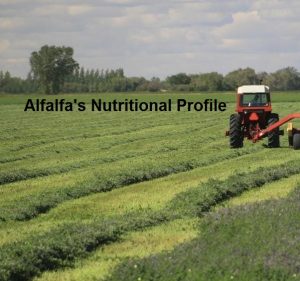
When evaluating livestock feed options, alfalfa stands out for its impressive nutritional composition. This versatile forage delivers a balanced combination of protein, fiber, and essential minerals that support animal health and productivity. Whether you’re feeding dairy cows, performance horses, or small ruminants, understanding alfalfa’s nutritional profile helps optimize feeding strategies.
The Power of Alfalfa Protein
Alfalfa’s reputation as a premium feed begins with its high-quality protein content, typically ranging from 15% to 22% depending on cutting time and growing conditions. What makes alfalfa protein particularly valuable is its amino acid profile, containing all essential amino acids that livestock require for muscle development, milk production, and overall growth.
The protein concentration is highest in the leaves, which is why premium alfalfa products emphasize leaf retention during harvesting and processing. Dairy operations especially benefit from alfalfa’s protein quality, as it directly supports milk yield and quality. Our guide to Premium Alfalfa Hay Bales details how proper handling preserves these valuable nutrients.
Fiber Content and Digestibility
While alfalfa is known for its protein, its fiber components play an equally important role in animal nutrition. Alfalfa contains both digestible and indigestible fiber fractions:
-
Neutral Detergent Fiber (NDF) affects intake potential
-
Acid Detergent Fiber (ADF) influences digestibility
The balance between these fibers makes alfalfa suitable for various livestock classes. Ruminants like cattle and goats efficiently break down alfalfa’s fiber through microbial fermentation in their rumens. For horses, alfalfa provides highly digestible fiber that supports gut health without excessive bulk.
Different forms of alfalfa – whether hay, pellets, or cubes – maintain similar fiber profiles when properly processed. Our comparison of Alfalfa Hay vs. Pellets vs. Cubes explains how processing methods may slightly affect fiber availability.
Essential Minerals in Alfalfa
Alfalfa naturally accumulates important minerals from the soil, making it a nutrient-dense feed option:
-
Calcium: Critical for bone development and milk production
-
Magnesium: Supports nervous system function
-
Potassium: Essential for fluid balance and muscle function
-
Trace minerals: Includes zinc, copper, and selenium
The calcium-to-phosphorus ratio in alfalfa (about 6:1) makes it particularly valuable for growing animals and lactating females. However, this same characteristic means alfalfa hay should be balanced with other feeds for certain livestock classes. Our article on Alfalfa for Cattle and Goats provides specific recommendations for mineral balancing.
How Processing Affects Nutrition
The nutritional value of alfalfa can be influenced by several factors:
-
Cutting stage (early bloom vs. late bloom)
-
Drying conditions (sun-cured vs. dehydrated)
-
Processing method (baling vs. pelleting)
Pelletizing alfalfa at controlled temperatures helps preserve nutrients while creating a more convenient feed form. However, excessive heat during processing can damage heat-sensitive vitamins. For a comprehensive look at alfalfa’s nutritional aspects across different forms, refer to our Ultimate Alfalfa Guide.
Matching Alfalfa Nutrition to Animal Needs
Different livestock species utilize alfalfa’s nutrients in distinct ways:
-
Dairy cows benefit from the high protein and calcium for milk production
-
Beef cattle utilize the protein for efficient weight gain
-
Horses value the digestible energy and quality protein
-
Small ruminants like goats and sheep need balanced mineral content
Understanding these differences helps prevent overfeeding or nutrient imbalances. Explore our specialized guide to Alfalfa for Different Animals for species-specific recommendations.
Maximizing Alfalfa’s Nutritional Benefits
To get the most value from alfalfa feed:
✔ Test your alfalfa for actual protein and mineral content
✔ Balance rations to complement alfalfa’s nutrient profile
✔ Store properly to prevent nutrient degradation
✔ Monitor animal condition and adjust feeding as needed
By understanding alfalfa’s complete nutritional profile, you can make informed decisions that enhance your livestock’s health and performance. For more information on alfalfa varieties and their characteristics, read about the Different Types of Alfalfa available.